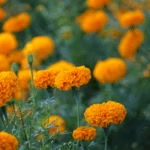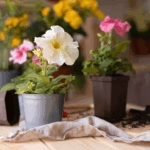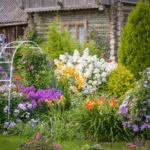If you’re looking for a tall, elegant plant that attracts pollinators and adds vibrant color to your garden, Spider Flowers—scientifically known as Cleome hassleriana—are an excellent choice. Famous for their long, spidery stamens and delicate blooms, these flowers are not only stunning but also easy to grow.

Spider flowers are loved for:
- Striking appearance with pink, purple, or white blooms.
- Long blooming season, lasting from early summer to autumn.
- Pollinator-friendly nature, attracting bees, butterflies, and hummingbirds.
Why Grow Spider Flowers?
Before you rush to plant them, here’s why Spider Flowers are a favorite among gardeners:
- Unique Visual Appeal – Their tall stems and exotic flower heads create a bold statement in any landscape.
- Low Maintenance – Once established, Cleome plants thrive with minimal care.
- Heat and Drought Tolerant – Perfect for Indian summers and hot climates.
- Pollinator Magnet – Supports garden biodiversity.
Best Varieties of Spider Flowers
Some popular varieties you can try:
- Cleome ‘Queen Series’ – Comes in vibrant shades of pink, cherry, and white.
- Cleome ‘Sparkler’ – Compact variety ideal for smaller gardens.
- Cleome ‘Helen Campbell’ – Classic pure white blooms.
How to Grow Spider Flowers
1. Choosing the Right Location
Spider Flowers prefer:
- Full Sun – At least 6–8 hours daily.
- Well-Draining Soil – Loamy or sandy soil works best.
- Space – Plant 12–18 inches apart to allow air circulation.
2. Sowing Seeds
- When to Plant: Early spring after the last frost or in early summer in warm regions like India.
- How to Plant: Sow seeds ¼ inch deep directly in the ground or start indoors 4–6 weeks before transplanting.
- Germination Time: 7–14 days.
3. Watering & Feeding
- Water deeply but infrequently—allow soil to dry slightly between waterings.
- Apply a balanced fertilizer once a month during the growing season.
4. Care Tips
- Stake tall plants to prevent bending.
- Remove faded flowers to encourage continuous blooming.
- Spider Flowers can self-seed, so watch for volunteer seedlings next year.
Common Problems and Solutions
| Problem | Cause | Solution |
|---|---|---|
| Yellowing Leaves | Overwatering | Reduce watering and improve drainage |
| Aphids or Whiteflies | Sap-sucking pests | Spray with neem oil or insecticidal soap |
| Poor Flowering | Low sunlight or nutrients | Move to sunnier spot, fertilize monthly |
Companion Planting for Spider Flowers
Spider Flowers look beautiful alongside:
- Marigolds – Adds contrasting color and helps deter pests.
- Sunflowers – Complements the tall, upright growth habit.
- Zinnias – Continuous blooms for a vibrant flower bed.
Where to Buy Spider Flower Seeds in India
You can find quality Cleome seeds from:
- Agzora Store – Fresh, germination-tested seeds for better results.
- Local nursery shops.
- Trusted online platforms like Amazon or Flipkart.
Quick Facts About Spider Flowers
- Botanical Name: Cleome hassleriana
- Plant Type: Annual
- Height: 3–5 feet
- Bloom Colors: Pink, purple, white
- Bloom Season: Summer to autumn
FAQs on Spider Flowers
Q1: Are Spider Flowers poisonous?
No, Spider Flowers are non-toxic to humans and pets.
Q2: Can Spider Flowers grow in pots?
Yes, but choose a deep container and provide regular watering.
Q3: Do Spider Flowers attract bees?
Absolutely! They are pollinator-friendly and loved by bees and butterflies.
Final Thoughts
Spider Flowers are a fantastic addition to any garden—offering beauty, resilience, and a unique flair. Whether you’re a beginner or an experienced gardener, Cleome will reward you with stunning blooms and a garden full of life.
Call to Action:
Order premium Spider Flower seeds from Agzora today and transform your garden into a colorful paradise!






Good content